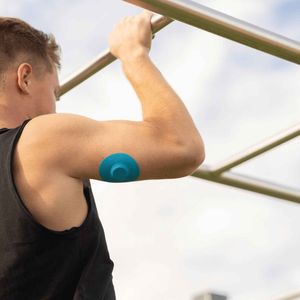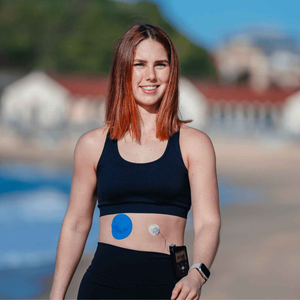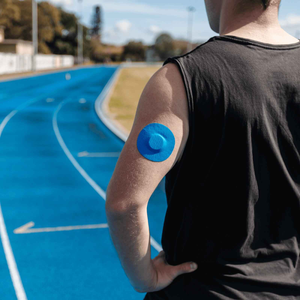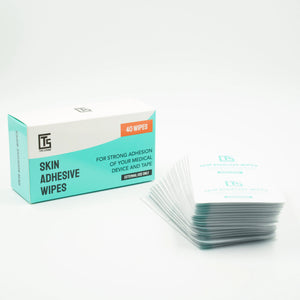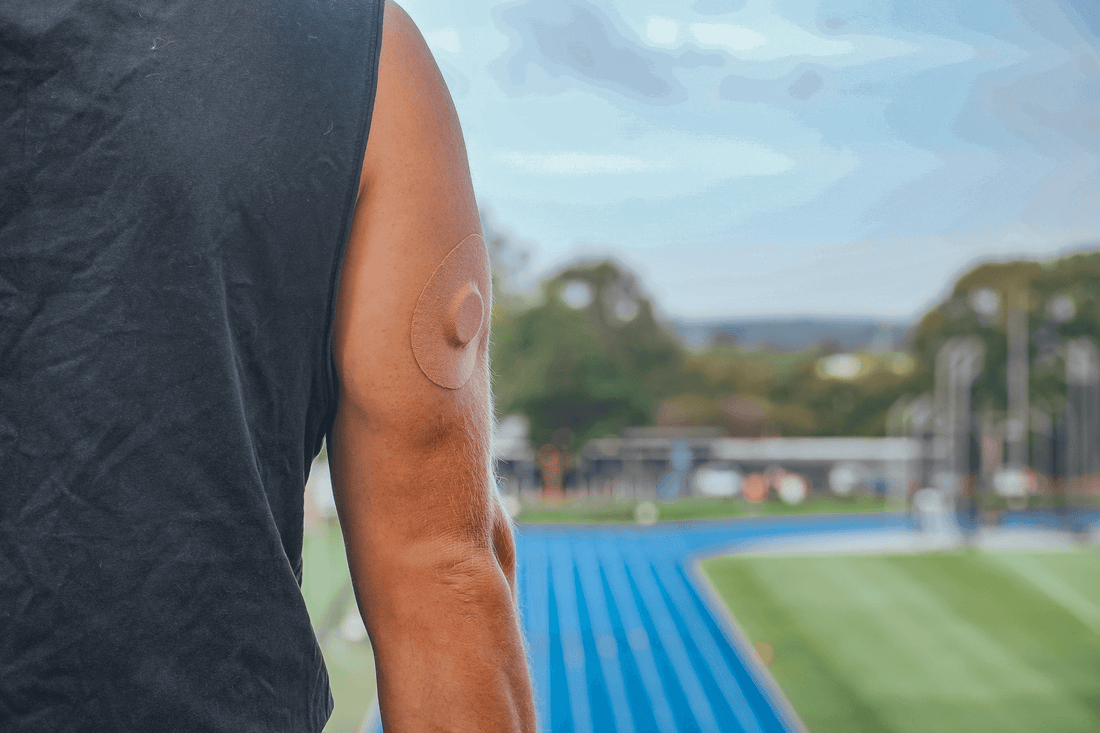Managing diabetes involves keeping track of what you eat and drink, and alcohol is no exception. While it is possible to enjoy alcohol in moderation if you have diabetes, it’s important to understand how it can affect your blood sugar levels and overall health. In this blog, we’ll explore how alcohol impacts blood sugar, provide tips for drinking responsibly, and outline what to watch out for when consuming alcohol if you have diabetes.
Before we continue, At Type Strong, we support individuals with diabetes by providing innovative products like our FreeStyle Libre, Medtronic Guardian & Dexcom G7 adhesive patches. Choose the best CGM for your needs and enhance your experience with our high-quality adhesive patches today!
Let's get started.
How Alcohol Affects Blood Sugar Levels
Alcohol can have varying effects on blood sugar levels depending on several factors, including the type of alcohol consumed, the amount, and whether you’re eating while drinking. In general:
Alcohol and Hypoglycaemia (Low Blood Sugar)
Alcohol can lower blood sugar levels, particularly when consumed on an empty stomach. This happens because your liver prioritises processing alcohol over maintaining normal blood sugar levels. As a result, your blood sugar can drop dangerously low (hypoglycaemia). This effect can last for up to 24 hours after drinking, so it’s crucial to monitor your blood sugar closely during this period.
Alcohol and Hyperglycaemia (High Blood Sugar)
On the other hand, certain alcoholic drinks—such as sugary cocktails, beer, or sweet wines—contain carbohydrates that can raise blood sugar levels. These high-carb drinks can cause spikes in blood sugar, particularly if consumed in large quantities or without proper insulin management.
The key to drinking alcohol responsibly with diabetes is to be mindful of how it interacts with your blood sugar and other aspects of your diabetes management plan.
Types of Alcohol and Their Impact on Blood Sugar
Different types of alcoholic beverages affect blood sugar in different ways:
1. Beer
Beer, especially regular or craft beer, contains carbohydrates that can raise blood sugar levels. Light beer has fewer carbs, but it’s still essential to track your intake and monitor how it impacts your glucose levels.
2. Wine
Dry wines, both red and white, contain fewer carbohydrates and have a minimal effect on blood sugar levels. Sweet wines and dessert wines, however, are higher in sugar and can lead to glucose spikes.
3. Spirits (Vodka, Gin, Whiskey, etc.)
Spirits generally contain no carbohydrates and do not raise blood sugar levels on their own. However, mixing spirits with sugary sodas, juices, or syrups can cause significant spikes in blood sugar. If you’re consuming spirits, it’s best to pair them with sugar-free mixers like diet soda or sparkling water.
4. Cocktails
Many cocktails are loaded with sugar from mixers, syrups, or juices. Drinks like margaritas, piña coladas, and daiquiris can cause sharp rises in blood sugar levels due to their high sugar content. Opt for simpler cocktails with minimal or no added sugars.
Tips for Drinking Alcohol Safely with Diabetes
Here are some practical tips to help you enjoy alcohol responsibly while keeping your diabetes under control:
1. Never Drink on an Empty Stomach
Always eat before or while drinking alcohol. Having food in your stomach slows down the absorption of alcohol and helps stabilise blood sugar levels. Aim for a balanced meal with carbohydrates, protein, and healthy fats.
2. Choose Low-Sugar or No-Sugar Drinks
Opt for beverages with little to no sugar to avoid spikes in blood sugar. Light beer, dry wines, and spirits with sugar-free mixers are better options. Avoid sugary cocktails and mixed drinks that can cause sudden increases in glucose levels.
3. Monitor Blood Sugar Levels Regularly
Check your blood sugar before, during, and after drinking to ensure you stay within your target range. Alcohol can affect your blood sugar for up to 24 hours, so it’s crucial to continue monitoring even after you’ve stopped drinking.
4. Know the Symptoms of Hypoglycaemia
The symptoms of low blood sugar, such as dizziness, confusion, and slurred speech, can be similar to being intoxicated. This can make it difficult to tell whether you’re experiencing hypoglycaemia or the effects of alcohol. Carry glucose tablets or another fast-acting source of sugar with you to treat low blood sugar quickly if needed.
5. Stay Hydrated
Alcohol can lead to dehydration, which can affect blood sugar control. Drink plenty of water before, during, and after drinking alcohol to stay hydrated and help your body process the alcohol more effectively.
6. Limit Your Alcohol Intake
It’s important to drink in moderation. For people with diabetes, this generally means no more than one drink per day for women and two drinks per day for men. Keep in mind that one standard drink is equal to:
- 12 ounces of beer
- 5 ounces of wine
- 1.5 ounces of spirits
7. Wear a Medical ID
If you’re out drinking, it’s a good idea to wear a medical ID that indicates you have diabetes. In the event of an emergency, this can help medical professionals or others understand your condition and provide the appropriate care.
What to Watch Out For When Drinking Alcohol
Delayed Hypoglycaemia
One of the most significant risks of drinking alcohol with diabetes is delayed hypoglycaemia, which can occur hours after you’ve stopped drinking. This can be particularly dangerous if you’re sleeping and don’t realise your blood sugar is dropping. To prevent this, have a snack before bed and monitor your blood sugar levels carefully after drinking.
Interaction with Medications
Alcohol can interact with diabetes medications, such as insulin or certain oral medications like sulfonylureas, increasing the risk of hypoglycaemia. Speak to your healthcare provider about how alcohol may interact with your specific medications and whether any adjustments need to be made.
Enjoying alcohol in moderation is possible for individuals with diabetes, but it requires careful planning and monitoring. By understanding how alcohol affects your blood sugar levels, choosing low-sugar drinks, and staying on top of your glucose readings, you can minimise risks and enjoy social occasions responsibly.
We’re committed to supporting you in your diabetes management journey, offering innovative products like adhesive patches for continuous glucose monitors (CGMs) to ensure secure and comfortable wear throughout your day and night, even during social events. Take control of your health and enjoy life confidently with Type Strong.
Sources
1. American Diabetes Association. (n.d.). Alcohol and Diabetes. Retrieved from https://diabetes.org/health-wellness/alcohol-and-diabetes
2. National Diabetes Services Scheme. Alcohol and Type 1 Diabetes. Retrieved from https://www.ndss.com.au/about-diabetes/resources/find-a-resource/alcohol-type-1-diabetes-booklet/
3. Diabetes Australia. Should I drink alcohol? Retrieved from https://www.diabetesaustralia.com.au/living-with-diabetes/alcohol/
